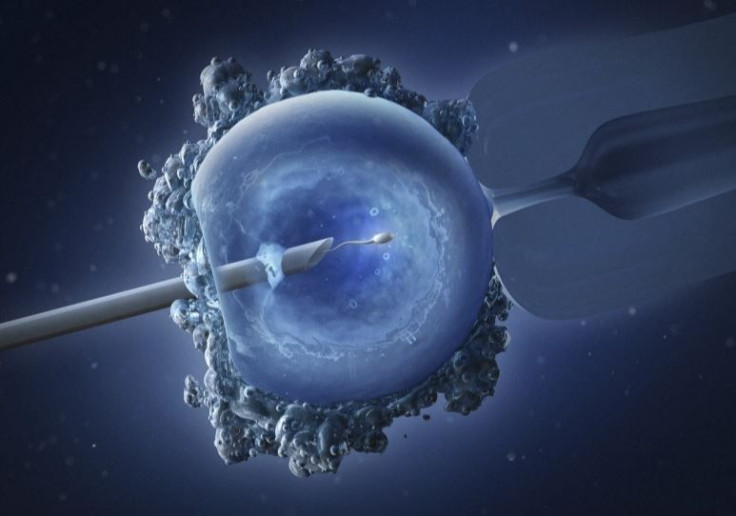Hormonal Drug May Provide Women At High Risk For Ovarian Hyperstimulation Syndrome With Safer IVF Treatment

In vitro fertilization is where plenty of couples with fertility problems look to, but for women facing higher risk of ovarian hyperstimulation syndrome (OHSS) — think of polycystic ovarian syndrome — IVF isn’t always safe. But according to a new study presented during the Society for Endocrinology’s annual conference in Edinburgh on Tuesday, there may be hope.
It’s called kisspeptin, and it’s a hormone researchers believe "offers a novel approach to trigger oocyte maturation during IVF treatment." Oocyte maturation is the official way to describe the process of helping ovaries mature eggs — later, these eggs are harvested to mix with sperm in order to form an embryo. Currently, doctors inject patients with the hormone human chorionic gonadotropin, which boasts the potential side effect of OHSS.
Researchers explained that OHSS is "one of the most common and perilous complications of IVF treatment and can result in massive ovarian enlargement," as well as kidney failure, acute respiratory distress syndrome, and even death. True, the risk of severe OHSS is approximately 2 percent, researchers said, but in patients with higher risk factors for OHSS, this risk increases fivefold.
So, researchers worked with clinicians from Imperial College Healthcare NHS trust in London to randomly assign random doses of kisspeptin to 60 women requiring IVF treatment for infertility, and were at high risk for developing OHSS. Once women received kisspeptin, their eggs were harvested, fertilized, and implanted 36 hours after the fact.
Since these women were considered high risk, they were routinely screened for associated symptoms, like abdominal pain, abdominal bloating, diarrhea, nausea and vomiting. Blood analysis and ultrasound parameters, like ovarian size, were also implemented.
The results showed oocyte maturation was observed in 95 percent of women receiving kisspeption and embryo formation occurred in 90 percent of women. And of the 60 women in the study, only three were diagnosed with mild early OHSS and one with mild late OHSS. However, "no woman had moderate, severe, or critical OHSS, and no woman required medical intervention for OHSS."
The live birth rate also seemed to increase, with a 45 percent rate among all doses of kisspeption. This rate increased to 62 percent among women given what was considered the best performing dose of kisspeptin.
"Interestingly, our results also suggest that using the best performing dose of kisspeptin resulted in pregnancy rates almost twice those reported for this age group using conventional stimuli of egg maturation," lead study author Ali Abbara said in a press release. "Kisspeptin appears to be a promising therapy and further studies are now needed to directly compare kisspeptin with currently available IVF treatments."
Source: Abbara A, Jayasena CN, et al. Efficacy of Kisspeptin-54 to Trigger Oocyte Maturation in Women at High Risk of Ovarian Hyperstimulation Syndrome (OHSS) During In Vitro Fertilization (IVF) Therapy. The Journal of Clinical Endocrinology & Metabolism. 2015.



























